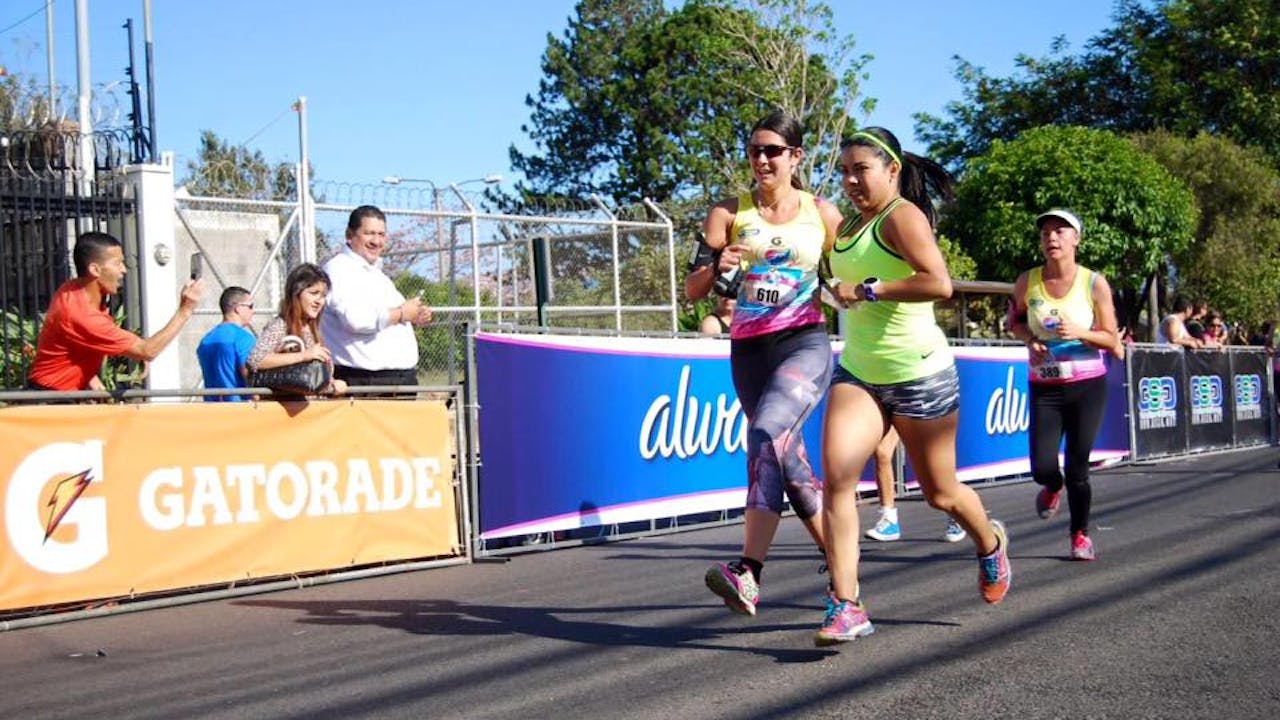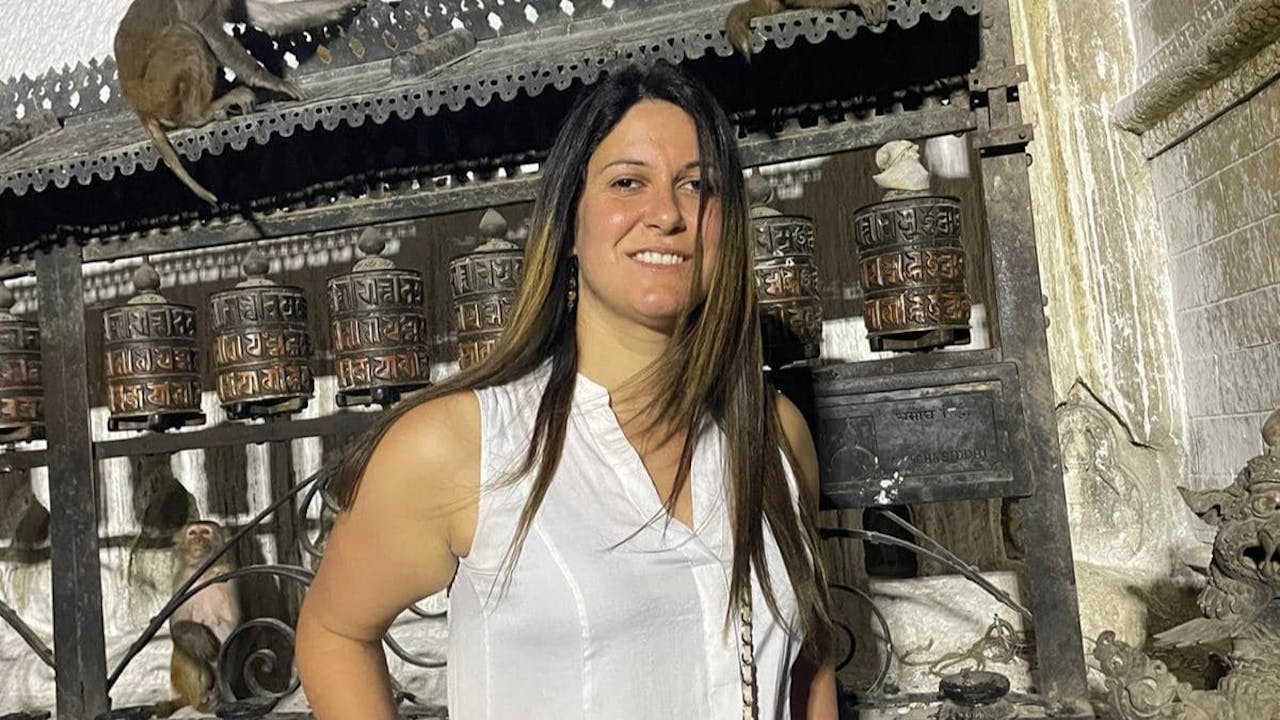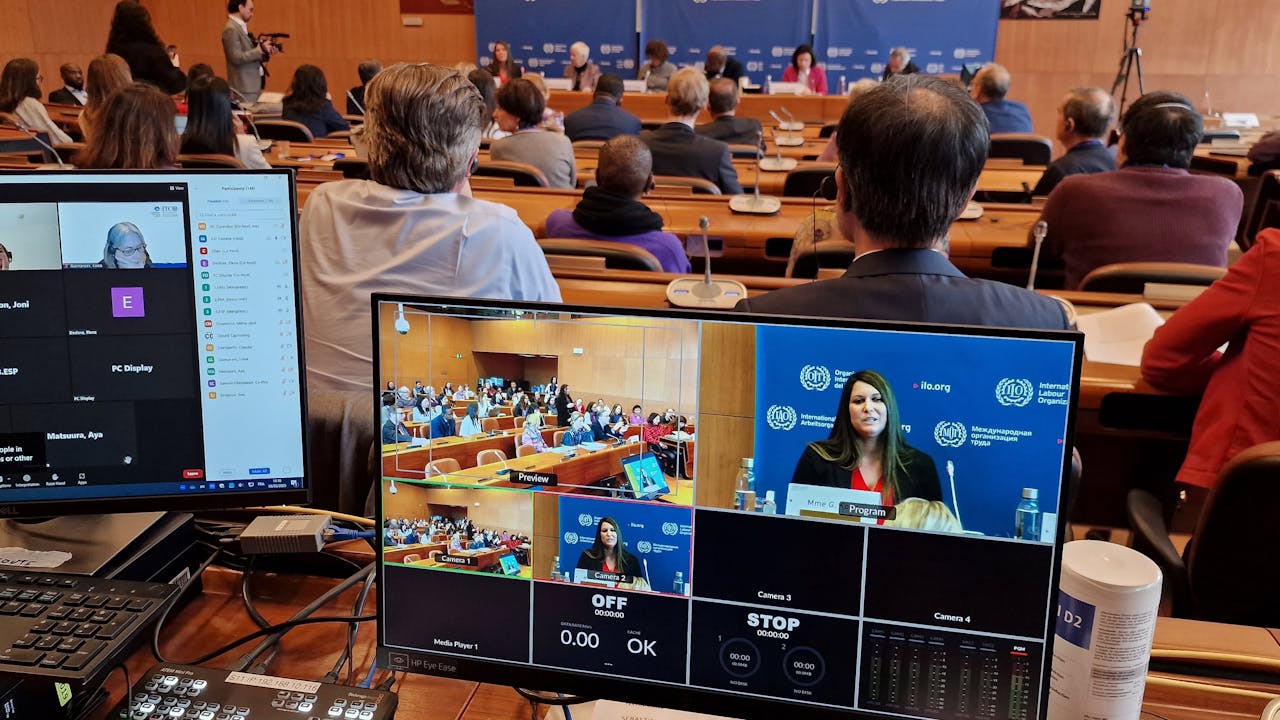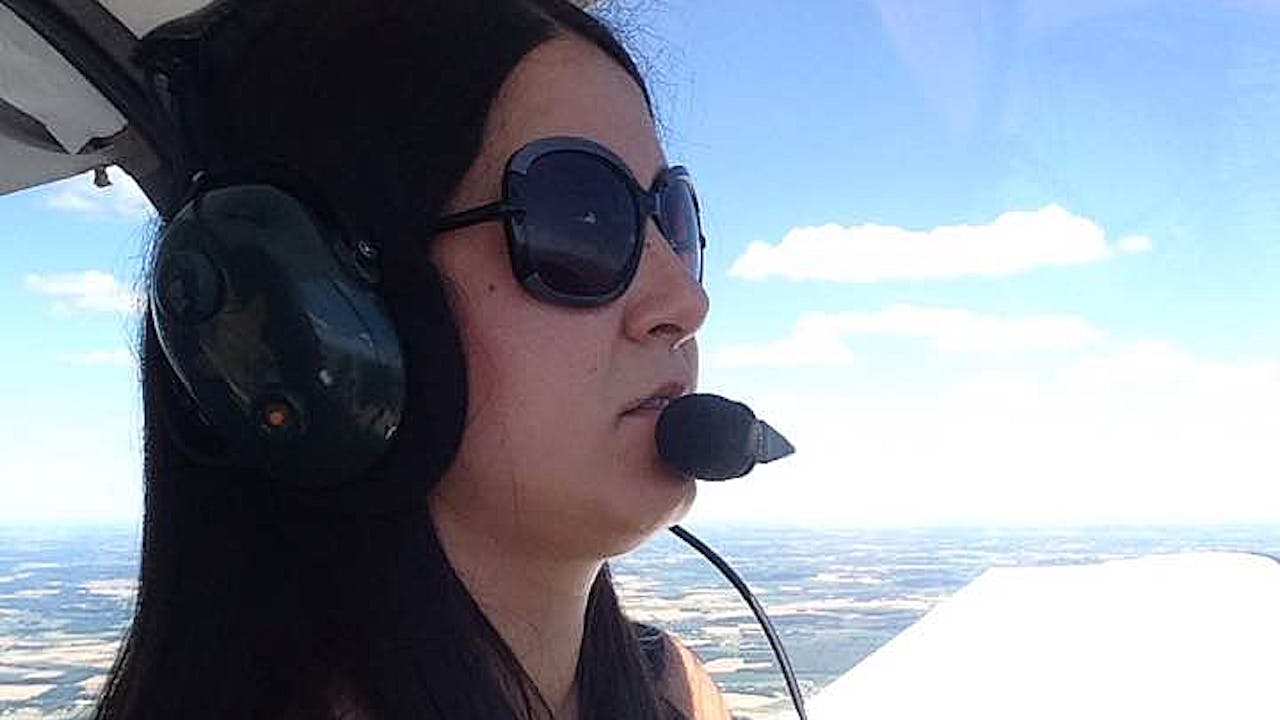When I was younger, I always felt I had to go into the unknown, sometimes alone. I had many fears because of this. Society has lower expectations from persons with disabilities, so to be noticed you need to be achieving greater things, otherwise no one considers you or thinks that you are able to do this or that.
That’s why I was so competitive, getting the best grades, running a marathon, doing two master’s degrees, travelling to many countries.
I am visually impaired. I have light perceptions and can see if it’s dark, sunny or cloudy, as well as shadows. But I can’t see much more than that.
VIDEO WITH AUDIO DESCRIPTION FOR PERSONS WITH A VISUAL IMPAIRMENT
VIDEO WITH CAPTIONS
I grew up in a Turkish family in France. I spent a lot of my childhood wanting to be like my brothers, to have my hair short, dress like them, climb trees and so on.
When I was younger, I could see a bit more and until my first year of primary school I was in a regular class, learning how to read and write like others. Like many kids with disabilities, my needs were not considered and since we spoke Turkish at home, I also had to adapt to a French-speaking environment.
When I finished first grade, I was told, okay, great, now you must restart everything but in braille. So, I had to work twice as hard as the other kids, including learning how to use assistive devices, like screen readers.
As I approached adulthood, my big dream was to go to university and study law, which is what I did. It was very important for me to understand how the world worked, how the rules were made and why we can or cannot do certain things.
I always had a strong sense of justice. I could never stay silent when there was something happening that I felt was unfair.

When I was 24 I ran the New York Marathon, guided by a sighted runner. Preparing for a marathon taught me perseverance. I learnt that to achieve some goals you need to be surrounded by great people. (2016)
© Güler KocaI was the first member of my family to go to university, a step into the unknown. I had no idea what I was getting myself into.
I think in many countries people have a fixed idea of what persons with disabilities can or cannot do.
For instance, they say blind people are good at giving massages or working at call centres. In France, many people who are visually impaired are physiotherapists, which is a great job but it’s not what I wanted to do.
I remember my first day at university. I was a bit scared. I was waiting for my first class, which was constitutional law. I was alone. That’s when I met another student, who became one of my best friends.
We both wanted to travel and do some solidarity projects. She was French and Peruvian and it’s through her that I got involved in my first big trip. I went to Peru, where together we set up a project to raise funds and build a massage centre, run by persons who are visually impaired. Ten years later the project is still going. I’m very proud of that.
My degree also took me to Barcelona, where I learnt Spanish. After I graduated, with honours, I decided to look for an experience that could help me learn English, travel and do something useful. I volunteered at an animal shelter in Fiji, the farthest place I could go!
Despite speaking five languages, having two master’s degrees and having done internships and taken part in projects all over the world I still couldn’t find a formal job.

While I was in Fiji the country was transitioning to a more democratic form of governance and a big consultation with civil society was launched. I supported a local organization of persons with disabilities that drafted a proposal for the future constitution. It was an amazing experience and my first encounter with the disability rights movement.
It made me realize that I wanted to work in human rights for international organizations. I completed two master’s degrees – international law in Geneva and international peace studies in Costa Rica. For the second master’s I did an internship in Israel and the Occupied Palestinian Territory. I ended up staying there for a year in order to study Arabic.
Yet, despite speaking five languages, having two master’s degrees and having done internships and taken part in projects all over the world I still couldn’t find a formal job.

I recently travelled to Kathmandu, Nepal. My life is all about exploring the unknown. I'm always intrigued about what will come next. (2022)
© Güler KocaNo employer will tell you, 'I will not select you because you have a disability.' However, when we see the statistics showing that there are so few people with disabilities in the world of work we can deduce that they are facing discrimination.
It's not necessarily direct discrimination. Applying for jobs was a nightmare because many job sites are not accessible to applicants who use screen readers.
At job interviews I would often need to ask them to make changes to the interview process if it wasn’t accessible. For example, for one job I was asked to analyze a graphic, even though they knew that I had a visual impairment. I asked them, “How can I do this? The graphic isn’t accessible to me.” They told me not to worry and that I didn’t need to do it. You may think this was nice of them but I know that this prevented me from getting the job.
It was very frustrating because I knew I had great skills. For a very long time, I felt that I needed to do ten times more to achieve the same as others, and that at the same time, society had lower expectations for persons with disabilities.
I’ve become more selective now about my goals and activities and only do what is really meaningful to me. If I need to convince others that I can do as well as another person, then there is already something wrong.
For a very long time, I felt that I needed to do ten times more to achieve the same as others, and that at the same time, society had lower expectations for persons with disabilities.

A former colleague from an internship suggested I become a freelancer. It would mean I wouldn’t need to go through any more unfriendly job application processes or have to convince others about my employability.
I went ahead and created my company in France. It took me half an hour. I did it on my birthday to give me luck and it worked! I got my first client that very day with the United Nations High Commissioner for Refugees (UNHCR). It was the best I could have dreamed for. After that, I didn’t take a break for two years, collaborating with many organizations such as UNICEF, the International Disability Alliance, the International Committee of the Red Cross and the Minority Rights Group.
Then two years ago I was hired by the International Labour Organization (ILO). I’m now the focal point for gender equality and disability inclusion in the PROSPECTS project. Its aim is to promote the inclusion of refugees in the world of work in the horn of Africa and the Middle East.
Making sure an organization, a workplace, a project, is inclusive of everybody is such rewarding work. It forces you to take a step back, take an overview of the organizational structure and make recommendations that will improve everybody's life. What's better than this!

Earlier this year I spoke about gender equality and disability inclusion at the ILO’s International Women’s Day event. (2023)
© ILO/OITMy life has always been about exploring the unknown. In France there is an organization that created a system to enable a visually impaired person to pilot a plane. The system creates sounds that give you the indications you need to fly the plane.
I remember going to my doctor to get a medical certificate to confirm I was fit to fly. He has always said yes to all my requests, signing certificates for skydiving, running a marathon and many more things. This time he was about to sign the paper when he suddenly stopped and said, “Sorry, but can you just take a minute to explain to me how this works?” I explained it to him and we started to laugh and laugh!
Flying is great. You can go anywhere. It’s not like driving a car where there are so many obstacles. This doesn’t exist in the air. So, it’s a great sensation of freedom. I think it gave me wings!

I’ve always liked to do extreme things. Flying a plane gives me a great sensation of freedom. (2016)
© Güler KocaI don’t know anybody who wouldn’t agree that disability inclusion is a good idea. But we need to go further and make it happen. It can start with listening to testimonies like mine and taking disability inclusion awareness training. That's great. But ultimately these things are not meaningful if you are not surrounded by persons with disabilities in your daily life.
